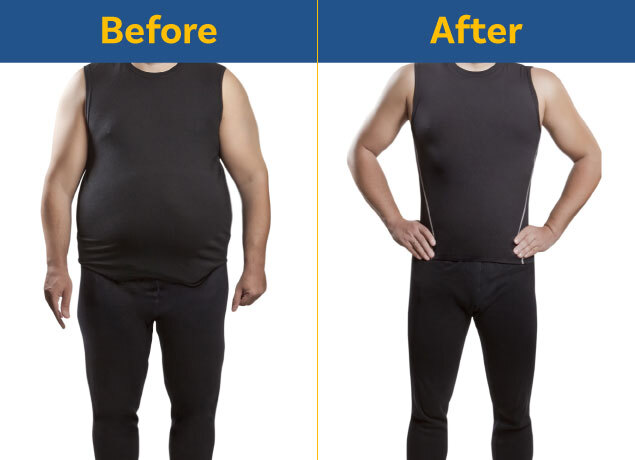
Select City
Bariatric Surgery is the most effective treatment for obesity. The treatment is life-saving for people who are morbidly obese and has a higher risk of developing life-threatening medical conditions. Undergo weight loss surgery and improve your health with the help of the best bariatric surgeons in India.
Bariatric Surgery is the most effective treatment for obesity. The treatment is life-saving ... Read More




Free Consultation

Free Cab Facility

No-Cost EMI

Support in Insurance Claim

1-day Hospitalization

USFDA-Approved Procedure
Choose Your City
It help us to find the best doctors near you.
Ahmedabad
Bangalore
Hyderabad
Delhi
Gurgaon
Noida
Ahmedabad
Bangalore
Bariatric surgery is a treatment that helps a person lose excess body weight. Some people choose to undergo surgery themselves. For others, the bariatric surgery procedure is generally recommended by a surgeon to resolve various potential health concerns caused due to overweight.
If you are morbidly obese, your healthcare provider is likely to suggest you lose some weight or choose bariatric surgery to address obesity-related health problems.

Fill details to get actual cost


Being obese is not good for an individual’s health. And for most people, reducing weight on their own, without any help can be very difficult. Thus, bariatric surgery is recommended to allow them to lose unhealthy weight.
Pristyn Care provides weight loss treatment using the laparoscopic bariatric surgery technique. This ensures that the surgery is minimally invasive for the person and delivers the best result in terms of weight loss. We employ techniques like sleeve gastrectomy (bariatric sleeve surgery), gastric bypass, adjustable gastric band etc., depending on the patient’s profile.
We have our own clinics across various cities in India and also have partnered with hospitals that have modern infrastructure and amenities. We also have an in-house team of general and laparoscopic surgeons who are reliable and have treated numerous people to lose weight in the best way possible. Our bariatric surgeons have more than 10+ years of experience in performing all types of bariatric weight loss surgeries with a success rate of over 90%. You can book a free consultation with the experts and plan the weight loss treatment.
Before the surgery, you’ll have to meet several health care professionals, including an internist, a dietician, a psychiatrist/psychologist, and a bariatric surgeon.
The bariatric surgeon will suggest you lose weight through diet and exercise to bring your blood glucose down (normal levels) to reduce the bariatric surgery risks.
Before taking you to the operation theater (OT), a nurse will place a urinary catheter and IV line. Other equipment will also be set up in the OT to monitor your temperature, blood pressure, pulse rate, respiratory rate, and oxygen levels.
In the OT, a surgical drape will be placed to cover your body. Only the abdomen will be exposed. Your skin will be cleaned properly by using a chemical solution to reduce the risk of infection.
The surgery will take place in the following steps-
A single incision bariatric surgery or multiple incisions will be created in the skin tissues. If open laparotomy is being performed, a large incision will be made across the stomach to access the stomach and intestine. The exact size and location of the incision will depend on the type of bariatric surgery you are having.
In the case of a minimally invasive laparoscopic bariatric surgery procedure, the surgeon will make four to six small incisions in the abdomen approximately 1-2 inches long. Incisions will also be made into the mesothelium (the layer of tissues that encloses the abdominal organs).
The next steps of the surgery will specifically depend on the type of surgery. The surgery is likely to include one or more of the following-
After the stomach and small intestine are positioned as required, the incisions will be closed and covered with bandages. A temporary drain will also be placed inside the stomach which extends to the exterior of the body.
The anesthesia will be stopped and the breathing tube will be removed. The anesthesia team will ensure that you are breathing fine afterward before taking you to the recovery room.
The surgeon will give you some instructions that you’ll have to follow strictly. It will include the following-
After you are admitted to the hospital, you will have to sign a consent form before the medical team starts the preparations for the surgery.

Diet & Lifestyle Consultation

Post-Surgery Free Follow-Up

Free Cab Facility

24*7 Patient Support
During the surgery, the following Bariatric Surgery Complications can arise-
Most of these bariatric surgery risks can be identified and mitigated by an experienced surgeon beforehand.
You can expect to be a little disoriented after the treatment. In the next few hours after the surgery, you will be in the recovery area where machines will be placed to monitor your blood pressure, pulse, oxygen saturation, and respiratory rate. The nurses will also check the surgical wound and give pain medications as necessary.
The urinary catheter will be removed after the surgery and the nurses will ensure that you are able to urinate and pass stools properly.
You will most likely have to stay in the hospital for several days after bariatric surgery. During the hospitalization, nurses and doctors will closely monitor your health.
Each type of bariatric surgery has its own advantages and disadvantages. The surgeon evaluates the patient’s health and then chooses the most suitable technique.
| Sleeve Gastrectomy | In a bariatric sleeve surgery, part of the stomach is separated and removed from the body. This smaller stomach cannot hold as much food. |
| Roux-en-Y Gastric Bypass (RYGB) | This surgery reduces the size of your upper stomach to a small pouch about the size of an egg. |
| Adjustable Gastric Band (AGB) | Adjustable gastric banding (AGB) is a weight loss surgery where an adjustable silicone band is placed around the upper portion of the stomach, reducing food intake. |
| Biliopancreatic Diversion with Duodenal Switch | This type of bariatric surgery changes the size of your stomach and the length of your small intestine. It limits how much food you can eat, digest, and absorb. |
Also known as “sleeve”, this procedure involves excluding approximately 80% of the stomach from the digestion process. The remaining stomach is in the shape and size of a banana.
This bariatric surgery procedure works by holding less food and liquid, reducing the amount of calories consumed. The part of the stomach that produces most of the hunger hormone is removed surgically. Thus, the patient won’t feel as hungry as before and eat less. This will allow the body to reach and maintain a healthy weight and blood sugar levels.
The effects of sleeve gastrectomy are good and it is a suitable procedure for patients with a high risk of obesity-related medical conditions. However, it is a non-reversible procedure.
In many cases, Roux-en-Y (in the form of Y) gastric bypass is referred to as “Gastric Bypass”. Roux-en-Y has been in practice for more than 50 years and thanks to the laparoscopic approach, the surgery is now much safer and more effective than before.
The procedure involves dividing the stomach into a smaller top portion (essentially a pouch) and a large part of the stomach is bypassed. Then the small intestine is also divided. Almost 18 inches of the small intestine is bypassed and the small stomach pouch is connected to the intestine through surgical staples. The lower or larger portion of the stomach is also connected to the small intestine to allow passage of the digestive juices.
This entire bowel connection made during the procedure resembles the shape of the English letter Y, which is why the surgery is called Roux-en-Y gastric bypass.
The newly created stomach pouch holds less food, thereby fewer calories intake by the patients. Furthermore, the food won’t come in contact with the first portion of the small bowel which means decreased absorption.
It is one of the most reliable and long-lasting methods of weight loss. Though the procedure is more complex than other techniques, it is highly beneficial.
A gastric band is a device made up of silicone. This band is placed on the top of the stomach to limit the food intake of the patient. When the device is placed, it creates a small pouch above the band and the larger part of the stomach lies below the band.
The purpose of the procedure is to adjust the size of the stomach opening. When the opening is small, the amount of food intake will be reduced. This procedure has the lowest rate of Bariatric Surgery Complications and there is no division of the stomach or intestine involved. Moreover, the band can be removed whenever needed and other bariatric surgery risks are also reduced.
The band will be adjusted multiple times after the initial procedure. Due to this, the weight loss process is slightly slower in this type of bariatric surgery.
Commonly known as BPD-DS, this procedure involves the creation of a tube-shaped pouch which is quite similar to the sleeve gastrectomy. After the sleeve of the stomach is created, the first part of the small intestine is also separated carefully from the stomach. From the middle part, the intestine is brought up and connected to the outlet of the newly created stomach.
This procedure ensures that when the patient eats, the food goes from the stomach to the middle part of the intestine where fewer calories are consumed. Through this surgery, almost 75% of the small intestine is bypassed. Among the available options, the BPD/DS delivers the best results. At the same time, the procedure has higher complication rates and a greater possibility of vitamin and nutrient deficiencies.
Here are some common non-surgical weight loss procedures that are performed by doctors in particular cases.
ORBERA is a medical-grade silicone balloon that is inserted into the stomach using an endoscope. The balloon is soft and inflatable. It is inserted into the mouth while it is deflated. Once the balloon reaches the stomach, it is filled with sterile saline water that stays in the stomach for 6 months.
The balloon will make you feel fuller between the meals and even when you eat, you’ll feel full quickly as there will be limited space in the stomach. This reduces the appetite and promotes weight loss at a safe and steady rate.
People who have had gastric bypass surgery previously or have hiatal hernia or acid reflux are not considered good candidate for the procedure.
Also known as Accordion Procedure, endoscopic sleeve gastroplasty is a minimally invasive weight loss procedure. It involves using an endoscopic suturing device to create a sleeve of the stomach through the mouth. Almost 10 to 12 sutures are placed in the stomach to restrict the food intake. Then the stomach is pleated together without any abdominal incisions.
One of the major benefits of this procedure is that it reduces the levels of hunger hormone “grehlin” which makes the stomach full faster.
These injections are like supplements used for fat loss. This method is recommended for people who are already following a weight loss regimen, including a low-calorie diet and exercises. The injection contains vitamin B12 as a primary supplement along with vitamin B-6, B complex, L-carnitine, phentermine, branched-chain amino acids (BCAAs), and MIC (a combination of methionine, inositol, and choline).
Lipotropic injections are given directly into the subcutaneous fat tissues once or twice a week as required. The injection will continue until you reach the weight loss goal.
It is a non-surgical procedure that involves placing a tube in the stomach temporarily. It involves aspiring a large portion of the food from the stomach through the small tube before it is absorbed. Only the tube is placed surgically and the rest of the process takes place when you eat.
This method is not recommended for patients with hypertension, eating disorders, inflammatory bowel disease, or stomach ulcers.
The recovery after bariatric surgery is a long process physically and mentally. The patient has to take care of numerous things to recover at a fast pace. Moreover, there will be significant life changes after the procedure which means that the patient has to adapt to a new lifestyle. Thus, the average recovery time is around 2 to 3 months forx a patient after weight-loss surgery.
Throughout the recovery process, the patient will have to take multiple follow-ups in the upcoming months to ensure that everything is fine. During the first-month follow-ups, the drain and stitches will be removed. The doctor will inspect the wound and look for signs of infection. If everything is fine, the dressing will also be changed.
For proper recovery, you will have to work with your medical team to make the necessary adjustments in your life.
Usually, a patient can lose around 66% to 80% of the extra body weight in the first two years after having bariatric surgery. The duration and weight loss may differ depending on the types of bariatric surgery or procedure you’ve had.
Typically, after undergoing bariatric surgery, it becomes difficult for the body to absorb certain nutrients, including-
To make sure that you don’t get these deficiencies, you will have to take multivitamins and other supplements.
No, laparoscopic technique carries the same risks as open surgery. The key benefit of the technique is that the incisions will be smaller, which will make recovery faster and also reduce the scarring.
On average, bariatric surgery cost around Rs. 280500 to Rs. 600000 in India. The bariatric surgery cost depends on a variety of factors, hence, it will be different for each patient.
Yes, bariatric surgeries or weight-loss treatments are covered by health insurance. The patient has to submit proof of treatment and suggested treatment from a certified doctor. Only then the claim process can be initiated. To learn more about the coverage for bariatric surgery, talk to your insurance provider or insurance that covers bariatric surgery.
The surgery itself is not painful as the procedure is carried out under anesthesia. Once the effects of anesthesia wear off, you may feel slight discomfort and pain. To manage that, the doctor will prescribe pain medications that you’ll have to take for a specific period.
The duration of hospital stay varies based on the type of bariatric surgery performed. Generally, you may have to spend 2-3 days in the hospital so that the doctor can monitor how your body is responding to the treatment.
The doctor will ask you to walk on the same day after surgery or stand at the bedside. From the next day, the doctor will suggest that you take regular small walks.
KIRAN REDEKAR
Recommends
Very good experience.. 10/10 services provided. Surgery was Hassel free and salim islam helped us throughout from appointment fixing till the discharge and after admission and regarding claim and discharge all helped by sumit verma till reached home , Thanks to Salim Islam , Sumit Verma and manjeet kaur for everything to helping me to surgery till discharge .
Kiran Redekar
Recommends
Booked and Explain well about treatment from Dr Nelson and Pristyn Salim Islam guide time to time about treatment and process admission smooth for claim and hospital stay and all the process after admission done well managed by Sumit verma till discharge attend call and guide well till discharge
.svg)
.svg)